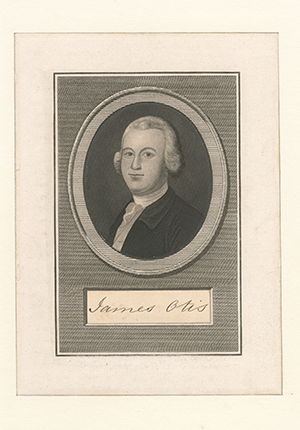Historic Document
Against Writs of Assistance (1761)
James Otis | 1761

Emmet Collection of Manuscripts Etc. Relating to American History, The New York Public Library
Summary
James Otis was a Massachusetts lawyer who rose to provincial fame in the 1760s as one of the most able defenders of colonial American rights, beginning with his argument in what became known as the Writs of Assistance case in 1761. Writs of assistance were general search warrants that British American courts began issuing to empower customs officials to combat smuggling. Agents would no longer need to obtain individual search warrants each time they sought to conduct a search, but instead could freely search vessels and homes without probable cause or express permission. Otis was enlisted to challenge the writs in courts and his fiery arguments were recorded by a young John Adams. Otis lost the case but galvanized colonial resistance. Later in life, Adams would proclaim that “then and there the Child Independence was born.”
Selected by

William B. Allen
Emeritus Dean of James Madison College and Emeritus Professor of Political Science at Michigan State University

Jonathan Gienapp
Associate Professor of History at Stanford University
Document Excerpt
This Writ is against the fundamental Principles of Law.—The Priviledge of House. A Man, who is quiet, is as secure in his House, as a Prince in his Castle—notwithstanding all his Debts, & civil processes of any Kind. …
I was desired by one of the Court to look into the books, and consider the question now before them concerning writs of assistance. I have accordingly considered it, and now appear, not only in obedience to your order, but likewise in behalf of the inhabitants of this town, who have presented another petition, and out of regard to the liberties of the subject. And I take this opportunity to declare, that whether under a fee or not (for in such a cause as this I despise a fee) I will to my dying day oppose with all the powers and faculties God has given me, all such instruments of slavery on the one hand, and villany on the other, as this writ of assistance is.
It appears to me the worst instrument of arbitrary power, the most destructive of English liberty and the fundamental principles of law, that ever was found in an English law-book. …
Every one with this writ may be a tyrant; if this commission be legal, a tyrant in a legal manner also may control, imprison, or murder any one within the realm. In the next place, it is perpetual; there is no return. A man is accountable to no person for his doings. Every man may reign secure in his petty tyranny, and spread terror and desolation around him. In the third place, a person with this writ, in the daytime, may enter all houses, shops, &c. at will, and command all to assist him. Fourthly, by this writ not only deputies, &c., but even their menial servants, are allowed to lord it over us. Now one of the most essential branches of English liberty is the freedom of one’s house. A man’s house is his castle; and whilst he is quiet, he is as well guarded as a prince in his castle. This writ, if it should be declared legal, would totally annihilate this privilege. …
Thus reason and the constitution are both against this writ. Let us see what authority there is for it. Not more than one instance can be found of it in all our law-books; and that was in the zenith of arbitrary power, namely, in the reign of Charles II., when star-chamber powers were pushed to extremity by some ignorant clerk of the exchequer. But had this writ been in any book whatever, it would have been illegal. All precedents are under the control of the principles of law. Lord Talbot says it is better to observe these than any precedents, though in the House of Lords, the last resort of the subject. No Acts of Parliament can establish such a writ; though it should be made in the very words of the petition, it would be void. An act against the constitution is void.




